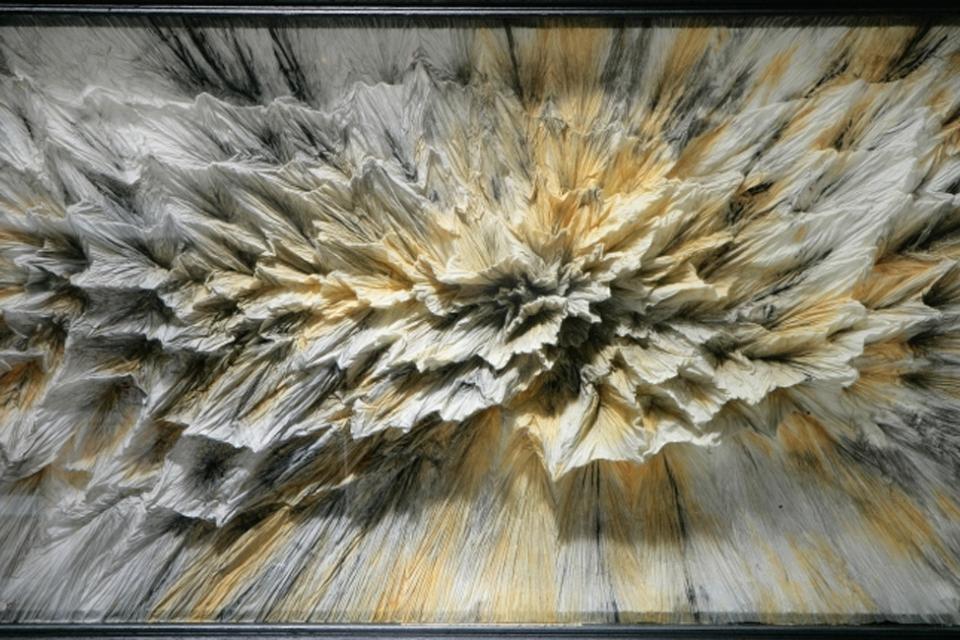
講演&シンポジウム
From Flapping Birds to Space Telescopes: The Modern Science of Origami. A Lecture by Robert Lang

講演&シンポジウム
From Flapping Birds to Space Telescopes: The Modern Science of Origami. A Lecture by Robert Lang
This program is FREE!
The last decade of this past century has been witness to a revolution in the development and application of mathematical techniques to origami, the centuries-old Japanese art of paper-folding. The techniques used in mathematical origami design range from the abstruse to the highly approachable. In this talk, I will describe how geometric concepts led to the solution of a broad class of origami folding problems – specifically, the problem of efficiently folding a shape with an arbitrary number and arrangement of flaps, and along the way, enabled origami designs of mind-blowing complexity and realism, some of which you’ll see, too. As often happens in mathematics, theory originally developed for its own sake has led to some surprising practical applications. The algorithms and theorems of origami design have shed light on long-standing mathematical questions and have solved practical engineering problems. I will discuss examples of how origami has enabled safer airbags, Brobdingnagian space telescopes, and more.
Co-sponsor: Consulate General of Japan in Los Angeles
Special: Robert Lang will lead an informal gallery talk after his lecture.
Robert J. Lang is recognized as one of the foremost origami artists in the world as well as a pioneer in computational origami and the development of formal design algorithms for folding. With a Ph.D. in Applied Physics from Caltech, he has, during the course of work at NASA/Jet Propulsion Laboratory, Spectra Diode Laboratories, and JDS Uniphase, authored or co-authored over 80 papers and 45 patents in lasers and optoelectronics as well as authoring, co-authoring, or editing 12 books and a CD-ROM on origami. He is a full-time artist and consultant on origami and its applications to engineering problems but keeps his toes in the world of lasers, most recently as the Editor-in-Chief of the IEEE Journal of Quantum Electronics from 2007–2010. He received Caltech’s highest honor, the Distiguished Alumni Award, in 2009.
The last decade of this past century has been witness to a revolution in the development and application of mathematical techniques to origami, the centuries-old Japanese art of paper-folding. The techniques used in mathematical origami design range from the abstruse to the highly approachable. In this talk, I will describe how geometric concepts led to the solution of a broad class of origami folding problems – specifically, the problem of efficiently folding a shape with an arbitrary number and arrangement of flaps, and along the way, enabled origami designs of mind-blowing complexity and realism, some of which you’ll see, too. As often happens in mathematics, theory originally developed for its own sake has led to some surprising practical applications. The algorithms and theorems of origami design have shed light on long-standing mathematical questions and have solved practical engineering problems. I will discuss examples of how origami has enabled safer airbags, Brobdingnagian space telescopes, and more.
Co-sponsor: Consulate General of Japan in Los Angeles
Special: Robert Lang will lead an informal gallery talk after his lecture.
Robert J. Lang is recognized as one of the foremost origami artists in the world as well as a pioneer in computational origami and the development of formal design algorithms for folding. With a Ph.D. in Applied Physics from Caltech, he has, during the course of work at NASA/Jet Propulsion Laboratory, Spectra Diode Laboratories, and JDS Uniphase, authored or co-authored over 80 papers and 45 patents in lasers and optoelectronics as well as authoring, co-authoring, or editing 12 books and a CD-ROM on origami. He is a full-time artist and consultant on origami and its applications to engineering problems but keeps his toes in the world of lasers, most recently as the Editor-in-Chief of the IEEE Journal of Quantum Electronics from 2007–2010. He received Caltech’s highest honor, the Distiguished Alumni Award, in 2009.

